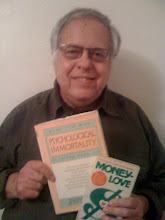Just before the end of 2011, as a gift for myself, I took advantage of the new lowest price model offered at $79. I was especially drawn to it after reading several reviews that said it was the best model out there because it only weighed six ounces. It doesn't have a touch screen like the new Fire and other higher-priced Kindles have, but I don't even use the touchpad on my MacPro, so that was no concern. I don't really know how it compares with other e-readers like the Nook, but have had many dealings with Amazon and have always been satisfied with their service, including their rapid no-questions-asked return policy.
It's been a month now and I find that reading a book on my new machine is as easy, probably easier, than reading a paperback book, and less cumbersome by far than a hardcover. Before it even arrived, I got a library card and checked out borrowing Kindle editions from the library. You can do it in seconds online, and keep them for two to three weeks, at the end of which they just are automatically removed from your Kindle, with no effort at all. As part of the ads and offers that appear when my Kindle is in the sleep mode (otherwise it would cost $100--and these ads only appear when the machine is not used to read books and is turned on) I got an offer to buy one book from a list of 100 for $1. So far, this is my only expenditure other than the original $79 (with free shipping) cost. Meanwhile, I now have 150 books stored in my Kindle, with room for a total of 1400 volumes. This includes a couple of library books, including John Grisham's newest, The Litigators, and a number of the free selections Amazon offers every day.
I like mysteries, and they have at least 100 mysteries that are free on any given day. This is smart marketing, in that they often offer the first book in a mystery series free, and if you fall in love with the author and series, additional volumes are about $9.99 each. However, with so many to choose from free and on loan from the two library systems I belong to, I doubt I'll be buying many books.
Amazon also offers hundreds of books in the public domain free for Kindle. I am catching up on classics I may have missed, including Mark Twain and Jane Austin and Charles Dickens, plus some of the early mystery and thriller writers I've meant to explore, like Edgar Wallace, G.K. Chesterton, and John Buchan of The 39 Steps fame. I've been pretty selective about building my library so far, but have added books by Aristotle, Plato, William James, Andrew Carnegie, Thoreau and Emerson. I still intend to buy and read books, but very, very carefully. I don't have a lot of storage room, and want to stay mobile as my travel plans are uncertain over the next few years. I'm not even sure where I'll be living in a year or two, so it will be nice not to have to lug boxes of books with me, just a device I can easily fit in my pocket.
With such authors as Timothy Ferriss choosing Amazon and the Kindle format as their primary publishing outlet, this is obviously going to revolutionize the book business. I'm not sure whether this will be good or bad, and certainly publishing has been changing before this latest technical development. Whatever impact it has on my own writing career, it already has been a delightful personal experience. How many cultural breakthroughs come along that make life a lot easier and less expensive while offering a major expansion of choices?
Jerry
Check out my other blog on prosperity at www.MoneyloveBlog.com

No comments:
Post a Comment